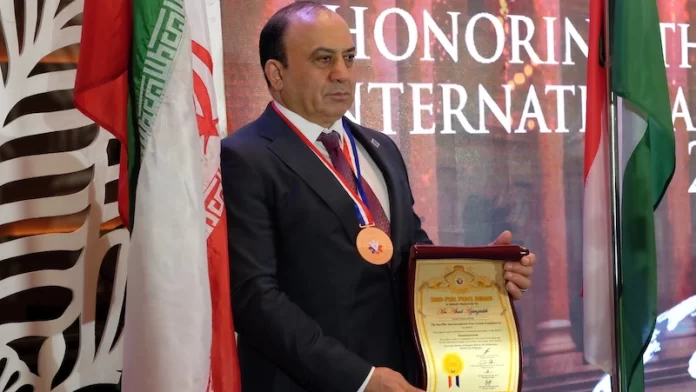In anticipation of the upcoming Domotex Middle East exhibition, we sought insights from Azimzadeh Carpet, the event’s largest exhibitor, and its CEO, Mr. Ahad Azimzadeh. Notably, Azimzadeh Carpet occupies a prominent position at the exhibition, boasting two stands encompassing a total area of 852 square meters.
Mr. Azimzadeh, drawing from your extensive experience participating in international exhibitions and events, what is your assessment of Domotex and its potential for success?
The Domotex Middle East (Dubai) will be successful because it has good access to all countries in the region. All traders, buyers and industry players in the carpet and flooring industry in the Middle East can reach the Dubai exhibition in the shortest possible time. There are also no special restrictions for Iranian traders to send goods and merchandise to the exhibition, in transit, or at customs.
How do you assess the potential of the United Arab Emirates in the carpet and flooring sector?
The UAE has great potential in the carpet and flooring sector. The country is a major hub for trade and tourism in the Middle East, and this has led to a growing demand for high-quality carpets and flooring. Iranian carpets are particularly popular in the UAE, and there is a growing market for machine-made carpets as well.

Iranian carpets boast a rich history spanning over three thousand years, epitomizing authenticity and cultural significance. As such, I consistently advocate for the purchase of hand-made carpets to those seeking quality and heritage. Beyond their role as home decorations, these carpets serve as sound investments with promising futures, reflecting timeless craftsmanship and enduring value.
Therefore, given that the United Arab Emirates, especially the city of Dubai, has become one of the most important commercial and tourist hubs in the Middle East due to its economic and geographical conditions, it naturally enjoys a very high position in the global markets and can certainly play an important role in introducing and developing the Iranian carpet market.
I have great respect for Iranian hand-Made carpets. If you visit all the major museums in the world, you will surely see examples of Iranian hand-made carpets. The Japanese have a saying that goes something like this: “If you have nothing in your house but a hand-made Iranian carpet, that’s enough.”

As a distinguished exporter and influential figure within the Iranian hand-woven carpet industry, with extensive experience and recognition as a top model in the field, how do you evaluate the potential of Iranian machine-made and hand-made carpet companies and producers in export markets globally?
Machine-made carpets typically cater to a distinct clientele, while hand-made carpets occupy a unique niche. Prior to the revolution, Iran held a dominant share, comprising 60 to 70 percent, of the global market for hand-woven carpets. Regrettably, insufficient support from our government over the years has contributed to a decline in the prominence and competitive standing of hand-made carpets on the global stage.
Companies and groups active in the production of hand-made and machine-made carpets, despite all the adversities in the production conditions, must focus on the updated tastes of the world’s people and the global markets.
The reality is that carpets manufactured in Iran are widely renowned for their superior quality and global recognition surpasses those of other nations. Nonetheless, emerging competitors in the industry pose a significant challenge to the upward trajectory of our domestic market. Despite the undeniable disparity in product quality, these competitors threaten to impede the growth of our producers within the global marketplace.




